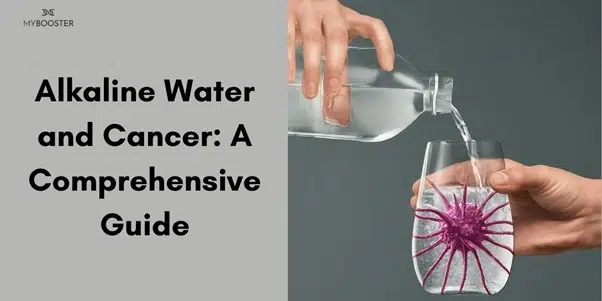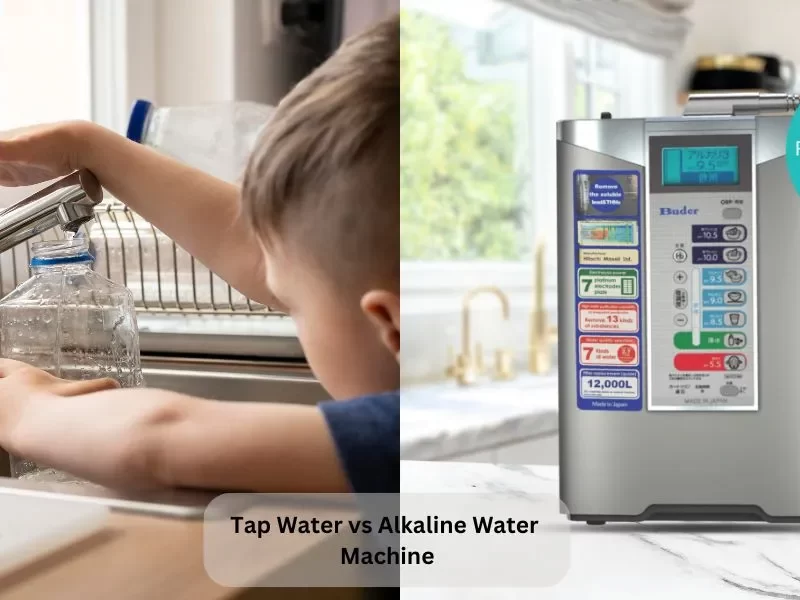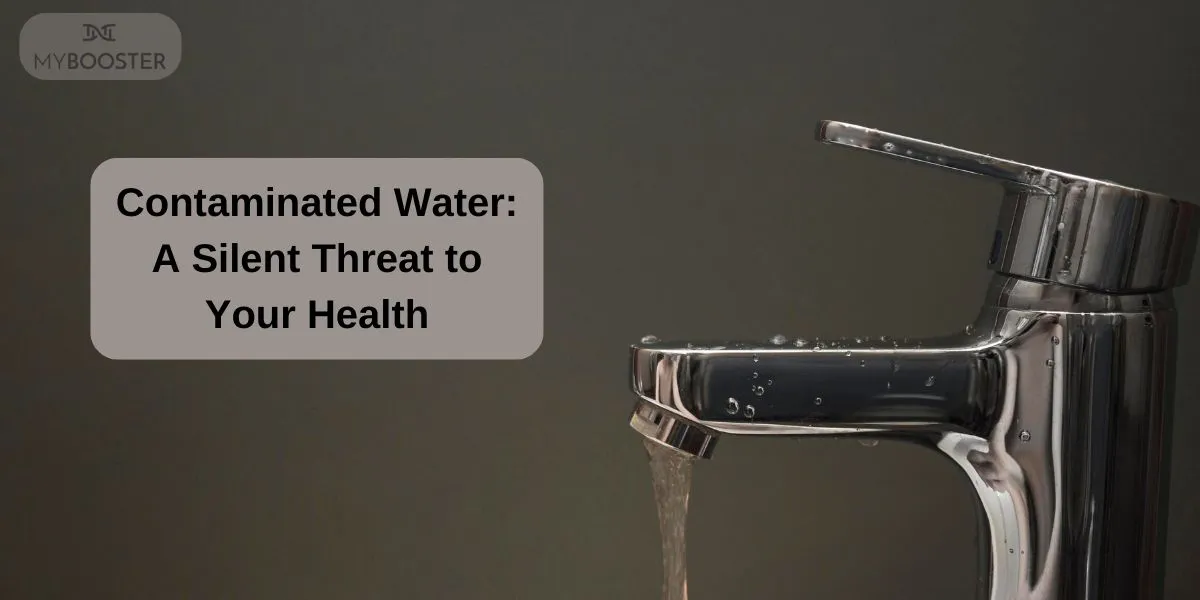
Contaminated Water: A Silent Threat to Your Health
Water is a critical resource for living, but many of us take its purity for granted. However, the quality of the water we drink can have a big impact on our health. Contaminated water is a quiet menace that can cause a variety of medical problems. In this blog, we will look at the problems of contaminated water, the health consequences, and how using an alkaline water ionizer can help assure safe drinking water.
Understanding Water Contamination
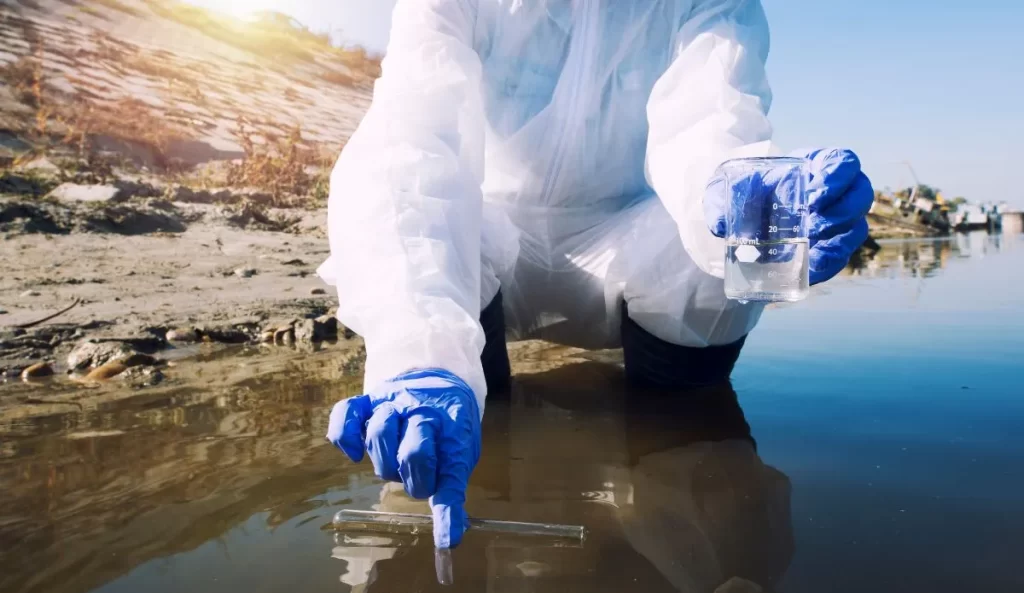
Water contamination occurs when dangerous substances such as chemicals, germs, and heavy metals infiltrate water sources, making them unfit for consumption. Bacteria, viruses, pesticides, industrial waste, and heavy metals (such as lead and mercury) are also common pollutants. These contaminants can come from a variety of sources, including agricultural runoff, industrial discharges, and poor waste management.
Different kinds of Contaminated Water
Biological contamination occurs when water becomes contaminated with microorganisms such as bacteria, viruses, and parasites. Sewage, animal waste, and contaminated water storage are some of the sources.
Chemical contamination occurs when toxic compounds enter water supplies. Pesticides, heavy metals, and industrial chemicals are some examples of common pollutants. These can include agricultural runoff, industrial discharges, and household chemicals.
Physical contamination occurs when physical items, such as soil, plastics, or garbage, contaminate the water. Inadequate garbage management and erosion are often to blame.
Radiological contamination occurs when water becomes contaminated with radioactive chemicals. Mining operations, nuclear power plants, and poor radioactive waste disposal are also potential sources.
India’s Water Quality
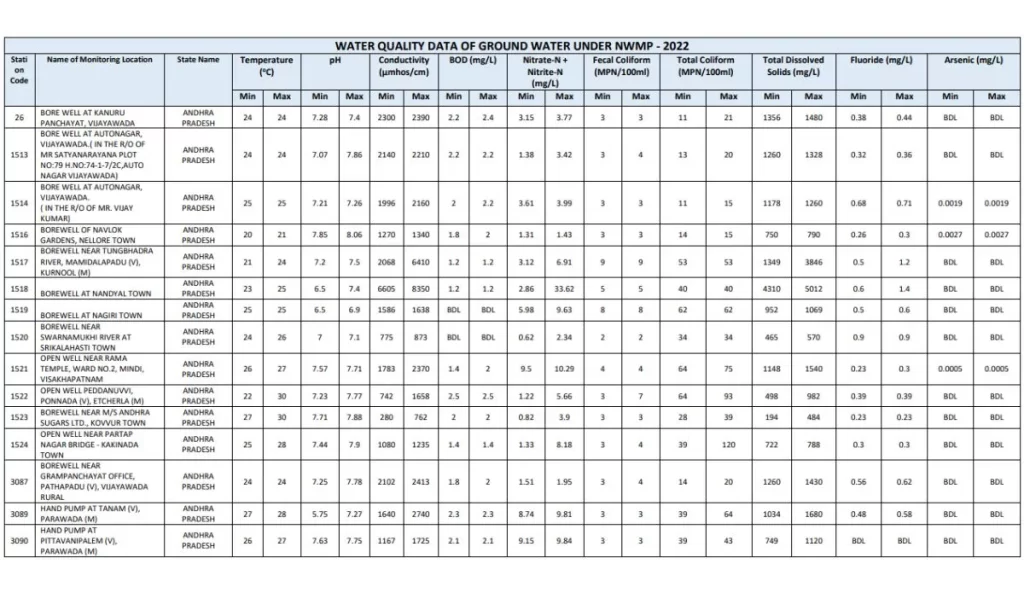
According to the Central Pollution Control Board’s (CPCB) Water Quality Report of India 2022, many of India’s water sources are contaminated with hazardous substances. According to the research, various rivers, lakes, and groundwater sources do not fulfill the safe drinking water criteria.
The findings show that pollutants such heavy metals, herbicides, and infectious microbes are present in dangerously high proportions. You can get the complete report here.
Key Findings From the Water Quality Report
The Water Quality Report of India 2022 provides a detailed review of water quality across states and regions. Here are some important highlights from the report:
1. High Heavy Metal Levels
Heavy metals like arsenic, lead, mercury, and cadmium are found in high concentrations in various bodies of water, according to the report. These metals are known to cause serious health consequences, such as cancer, neurological problems, and developmental delays in children.
2. Pesticide Exposure
Pesticides used in agriculture have leaked into water sources, contaminating them significantly. Pesticide residues in water can affect the endocrine system, create reproductive disorders, and lead to long-term health concerns.
3. Microorganisms that are pathogenic
Pathogenic microorganisms such as bacteria, viruses, and parasites have been found in numerous water sources. These germs can cause a variety of diseases, including gastrointestinal infections and more serious disorders such as cholera and hepatitis.
4. Industrial Pollutants
Industrial discharge contributes significantly to water pollution. Chemicals and garbage from factories have contaminated water bodies, impacting both surface and groundwater quality. Industrial pollution can range from hazardous compounds to heavy metals.
5. Variations by Region
The report identifies considerable geographical differences in water quality. Some locations have relatively pure water, but others are severely polluted. For example, millions of people rely on the Ganga and Yamuna rivers, which are heavily polluted.
Contaminated Drinking Water Causes Health Issues
Drinking contaminated water can cause a variety of health concerns, ranging from mild gastrointestinal discomfort to serious illnesses. Here are some of the most prevalent health concerns induced by drinking polluted water:
1. Infections in the gastrointestinal tract
Gastrointestinal infections can be caused by bacteria (e.g., E. coli), viruses (e.g., norovirus), or parasites (e.g., Giardia). Symptoms include nausea, vomiting, diarrhoea, and stomach cramps. These infections can be serious, particularly in young children, the elderly, and people with impaired immune systems.
2. Chronic Disease
Long-term contact with polluted water might result in chronic illnesses. Skin rashes, cancer, cardiovascular disease, and diabetes are all possible consequences of arsenic pollution. Similarly, exposure to lead can cause neurological abnormalities, developmental delays in children, and hypertension in adults. These disorders develop gradually, frequently as a result of extended exposure to low amounts of contamination.
3. Reproductive and Developmental Concerns
Heavy metals like mercury and lead are especially dangerous to pregnant women and young children. They can cause developmental delays, learning difficulties, and other serious health issues in children. Contaminants in pregnant women can cause birth abnormalities and other problems. The developmental influence on children might be long-term, affecting both their cognitive and physical development.
4. Skin Conditions
Certain pollutants can irritate the skin and produce rashes and eczema. Long-term contact with contaminated water can worsen these skin disorders and lead to more serious dermatological conditions. This is especially problematic for people who already have skin issues or allergies.
Alkaline Water Ionizers: A Safe Drinking Water Solution.
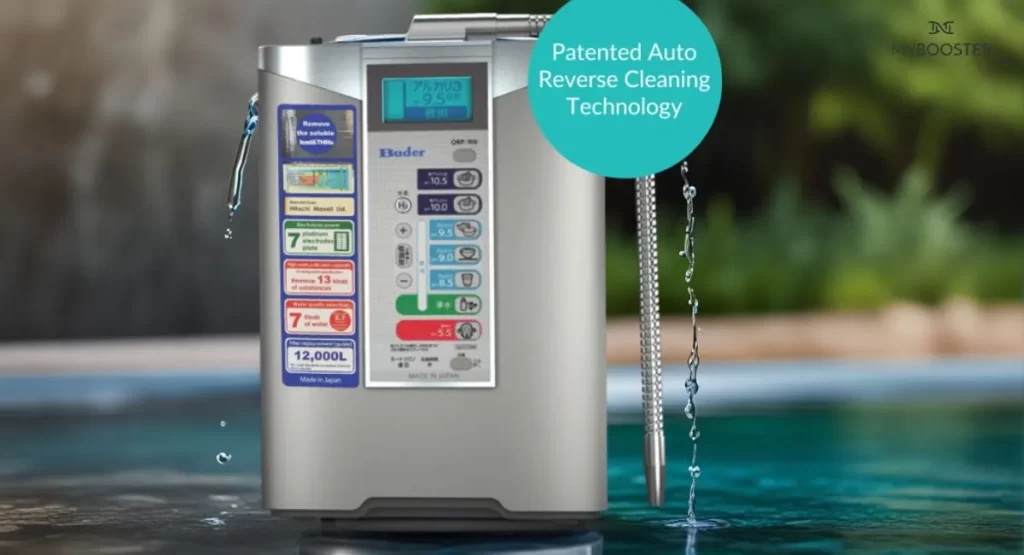
Given the dangers of contaminated water, it is critical to ensure that the water we drink is pure.
An alkaline water ionizer is a good answer for this problem. These devices not only help to keep the pH of the water balanced, but they also filter out dangerous substances.
How Alkaline Water Ionizers Operate
Alkaline water ionizers divide entering water into acidic and alkaline streams using electrolysis. Typically, the gadget is made up of multiple components.
Prior to electrolysis, water is filtered to eliminate impurities such as chlorine, heavy metals, and other toxins.
Electrolysis Chamber: Filtered water is introduced into the electrolysis chamber and exposed to electrically charged plates. This mechanism divides the water into alkaline and acidic streams.
Users can choose whether to dispense alkaline water for drinking and cooking or acidic water for cleaning.
Benefits of Using an Alkaline Water Ionizer
Enhanced Filtration: Alkaline water ionizers add an extra layer of filtration to ensure that dangerous pollutants are eliminated from the water. This makes the water safer to consume and lowers the risk of waterborne infections.
Balanced pH Levels: These devices help to keep the pH of the water balanced, making it less acidic and healthier. Balanced pH levels can promote general health and assist balance the body’s acidity.
Improved Taste: Alkaline water frequently tastes better than conventional tap water, leading to greater water consumption. Better-tasting water might help you stay hydrated and maintain good health.
Frequently Asked Questions
What pollutants are commonly Detected in Drinking Water?
Bacteria, viruses, pesticides, industrial waste, heavy metals such as lead and mercury, and chemicals like chlorine and fluoride are all examples of common pollutants.
How can I determine the quality of my Drinking Water?
You can evaluate the quality of your drinking water with commercially available home testing kits or by sending a sample to a recognized laboratory for a thorough study.
What is an Alkaline Water Ionizer, and how does it function?
An Alkaline Water Ionizer is a device that employs electrolysis to split water into acidic and alkaline streams. It usually has a filtration system to eliminate pollutants before the water enters the electrolysis chamber.
Will consuming Alkaline Water enhance my health?
A4: Drinking alkaline water may assist to neutralize excess acid in the body, enhance hydration, and give antioxidant benefits. However, it is critical to eat a well-balanced diet and seek specific guidance from a medical practitioner.
Can children and dogs Drink Alkaline Water?
Alkaline water is generally safe for kids and pets. However, it is best to introduce it gradually and monitor for any negative effects.
How often should I replace my Alkaline Water Ionizer’s filters?
Filter replacement frequency is determined by the manufacturer’s recommendations as well as the quality of your water source.

